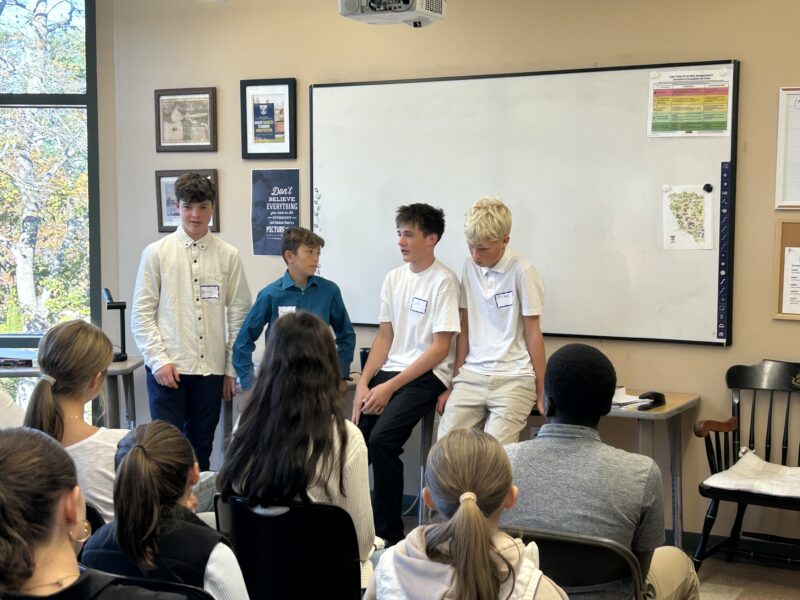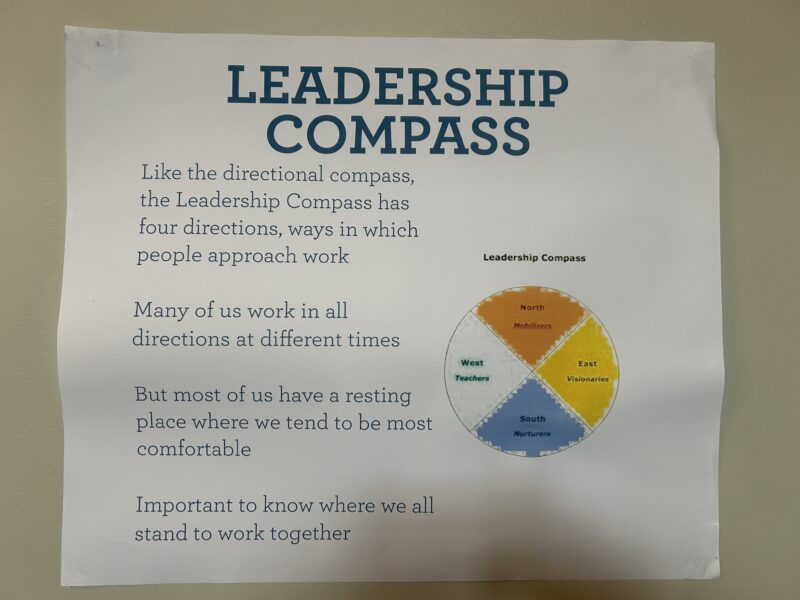Years ago around this time of the year, I was talking with a parent and comparing and contrasting the experiences of two recent grads in college. One had knocked the cover off the ball. The other had bombed. The parent observed, “Well, it looks as though these kids give you reason to be both proud of and concerned about the work you’re doing at Hyde.”
I replied, “Not really. I think this says a lot more about those two kids than it does about Hyde.” Let me explain my thinking, “good news/bad news” style.
The good news is that we at Hyde are very, very good at showing kids what their best would look like if they committed to doing it. We can control the environment, make them do the stuff they should do, enact the magic of Brother’s Keeper, bust their attitudes when they’re bad, praise them when they earn/need it, force then to try things that they either don’t want to try or don’t think they can do, and so on.
The bad news is we really don’t have the ability to make kids want to do their best. That has far more to do with influences that precede our involvement over which we have no control. It has far more to do with deep-seeded emotional dispositions that can only be worked out within the family. (That’s why we work so hard with their parents!)
So, we can make them do their best, but we cannot make them want to do their best. (More than a few times, I’ve said, “If we had the power to do that, I’d at least double our tuition!”) When I first realized this, it was depressing. (I guess I had been hoping to prove that Hyde would turn out to be the world’s one-and-only all-purpose panacea!) Then I realized that the “good news” by itself is a significant accomplishment.
When I arrived at Hyde as a 14-year old, any view of my best that I might have had would have been pretty mediocre. Convinced that school was rigged, I believed that I was not in control of my destiny, that even if I tried, things wouldn’t change all that much. So, I reasoned, If I can’t be good at being good, I’m gonna be good at being bad.
Speaking personally, had I not gone to Hyde, I very likely might have entered my adult life with fairly low expectations, simply hoping that maybe I could someday have an OK future. Hyde gave me a glimpse of my best. Upon arrival at college, Bowdoin knocked me on my ass and I went through the predictable sequence of excessive partying (Again, I’m going to be good at something!), cynicism, blaming Hyde (I remember chastising my Dad: “If you’re going to send kids to schools like Bowdoin, you’ve got to do a much better job preparing them!”), professing that the whole notion of one’s best is highly overrated, etc.
The notion of one’s best can be a scary proposition. (And not just for kids.) A few years at Hyde can give kids a view of their best and what it takes to attain it. After graduating, some kids want a break and they’re just not ready to put the necessary effort in. They know what it is though and often did not know this before Hyde. After the kind of setbacks I experienced, kids really only have two choices: 1) kick themselves in the pants and get back to work; 2) find fault with the place who gave them this curse of their best (i.e., Hyde). It’s like my dad says, Once you know the truth, you can’t unknow the truth. I came around and they can too.
Speaking as a Hyde parent, both my daughters have surpassed the college performance of their father. Beyond the grades they have received, I am amazed at how hard they work and how seriously they take it. However, they did well before Hyde and they’ve done well since. That’s just something that’s always been important to them. While Hyde might not have performed the corrective function for them that it did for me, it tested them in ways they would not have been at any other school.
If I had to identify a specific outcome that my daughters derived from Hyde, I would point to their summer jobs at a Maine resort. Both girls have been called upon by management to handle the resort’s more difficult guests, some of whom sent them home deeply distraught in the early going. But they fought through that and reached the point where they could laugh at what was happening while not losing their cool with the guests. So… accepting the challenge, staying with it during some tough times of rudeness and entitlement, coming out the other side with great customer relations skills, well, I would attribute that to their Hyde experience.
Whether at college or work, Hyde grads tend to do well once they accept, truly accept, that life is difficult. Once they accept that fact of life, it tends to become so much easier for them. And that’s good news… for everyone.
Onward, Malcolm Gauld


